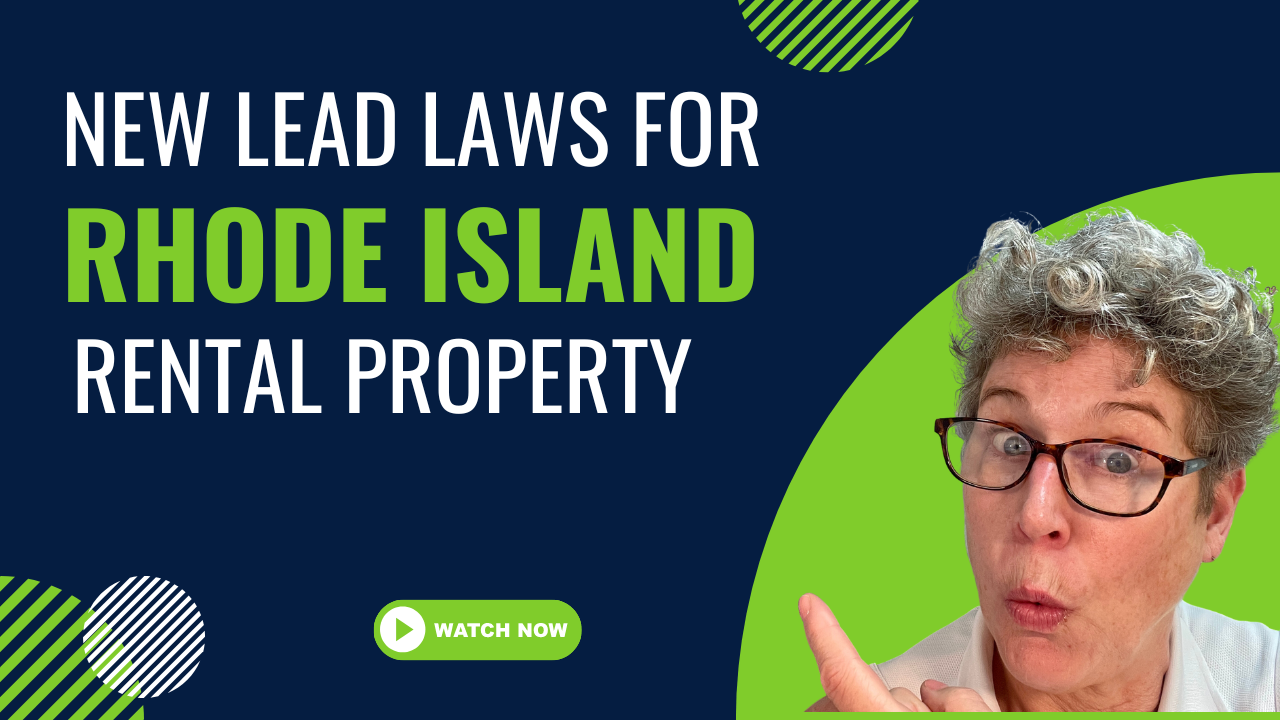Are you a Rhode Island rental property owner? Is your property built before 1978 like pretty much 90% of the property is in Rhode Island? Are you ready for the NEW RHODE ISLAND LEAD LAW that are going to be enforced starting in 2024? Not sure? Let’s talk about it.
I am Sandi Warner with Warner Realty Group, and today, we’re going to talk about the new [00:00:30] lead laws that came out of the 2023 legislative session in Rhode Island. The attorney general of Rhode Island is making lead safety a significant platform of his term of office. Why is he doing that?
(00:44):
Lead is a heavy metal that is toxic to the human body. In children under six, Lead Poisoning causes damage to the brain, nerves, blood, digestive system, and more, particularly for children under six. According to this online piece by the Cleveland Clinic: “It can damage your child’s nervous system, brain and other organs. Lead poisoning can also lead to severe health, learning and behavioral problems, including sudden brain damage and long-term intellectual deficits.”
(01:00):
[00:01:00] The new laws require that every owner of a rental property built before 1978 will have to have a Certificate of Lead Conformance [00:01:30] or a CLC. You will call a lead inspector to get this certificate and have them inspect your property. Essentially, they’re looking for evidence of lead in dust around your house. Original wood windows and doors are the most common sources, but lead can be found in the soil around your home if the property was stripped of lead paint in the past and it settled in the ground around your home.
(02:00):
[00:02:00] Those properties that have been remodeled are much less likely to see these issues, but it can come up. Many remodels go to great lengths to retain the historic beauty of doors, windows, trim, molding and hardware. Friction from opening and closing original doors and windows can cause layers of original lead paint to give off dust and become visible.
(02:30):
[00:02:30] What are your obligations to the Tenant? The new law allows your tenant to request and receive a copy of your CLC.
(03:00):
[00:03:00] Who does the appropriate remediation? The property owner must hire a lead conformant contractor for any job that disturbs more than 6 square feet of wall in any room.
(04:00):
[00:04:00] Exemptions: If your property is dedicated only to people living that are 62 years and older, [00:04:30] the property is exempt from the law.
(04:45):
If your property already has a lead safe certificate, you are exempt from the new rules.
New Speaker (04:55):
If you have temporary seasonal housing and there are no stays over 100 days, the property [00:05:00] exempt from the rule.
(05:05):
Owner occupied properties of two and three family homes are exempt. I suspect that we’re going to see that law sort of morph into what some of the FHA and ADA regulations say that you lose your exemption if you live in the house if you’re using a realtor for the second [00:05:30] and third floor. It doesn’t say that right now, but I’d keep an eye on how this law changes over time.
(05:37):
To get a CLC, call a certified Lead Inspector. The inspection is brief and not particularly intrusive. Rhode Island law and most leases require tenants to allow access with 48 hours notice for a landlord to make repairs. There is no excuse to say your tenant won’t allow you in. The [00:06:00] inspector looks for disturbed paint and s any dust for lead particles.
(06:30):
[00:06:30] If the property does not pass the inspection, the property owner has 30 days to take the steps to compliance.
(06:35):
Only a licensed lead inspector can conduct the initial inspection. For those properties who’s tenants remain after two years, the Property Owner or a designee can take the Lead Certification course on line and apply to conduct a visual inspection with an affidavit. Most property owners will most like have a Lead Inspector do the bi-annual re-inspection.
(08:00):
[00:08:00] Landlords must supply their tenants with a copy of the EPA Lead Handbook to make sure tenants know the risks and how to protect themselves. Rental Owners must disclose [00:08:30] the presence of any lead-based hazards in the property. [00:09:00] Finally, Property Owners must provide a copy of the CLC. .
(09:00):
Finally, and this is on every standard Rhode Island lease, you must provide your tenant with contact information for the responsible property owner or property manager.
(09:30):
[00:09:30] I’m [00:10:00] Sandi Warner with Warner Realty Group. If you have any questions about this, go ahead and shoot us an email or drop a message in the video. I hope you have a great day and we look forward to talking to you soon.
(10:14):
Warner Realty Group, Making the Complex Simple.



